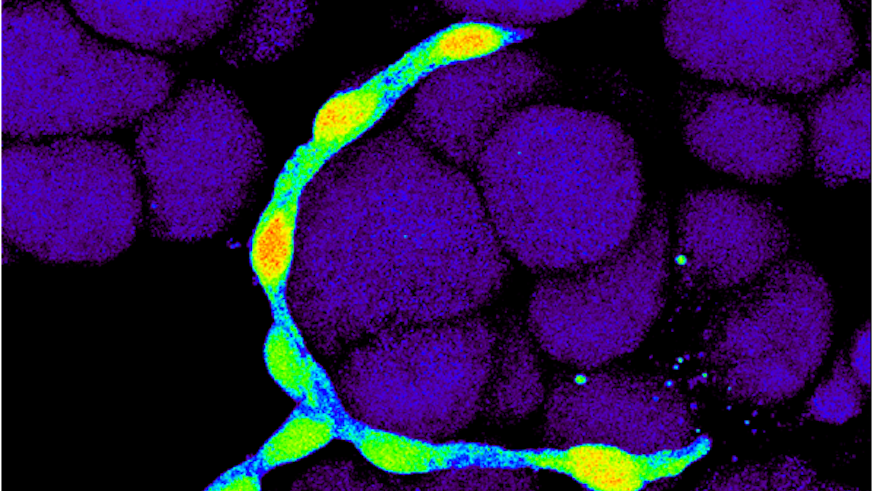New insights into Acute Pancreatitis
3 November 2016

New insight into the development of Acute Pancreatitis (an often fatal disease destroying the pancreas and its environment) points to novel treatment options.
Acute Pancreatitis is a disease in which digestive pancreatic enzymes become abnormally active inside pancreatic cells, digesting the pancreas itself. This causes massive cell death and in about 20% of the cases life-threatening complications occur, leading to multiple organ failures. In the UK alone, more than 1000 people die each year from Acute Pancreatitis and the cost for the NHS of treating this disease is about £200 million per year. Repeated attacks of Acute Pancreatitis can lead to Chronic Pancreatitis, which markedly increases the probability of developing the immensely painful Pancreatic Cancer. The most frequent cause of Acute Pancreatitis is gallstone complications, which can change the direction of bile flow from the gall bladder so that it enters the pancreas. In this way bile acids can act directly on the pancreatic cells.
Studying signalling events in living segments of the pancreas, allowing simultaneous recordings from different cell types, researchers from Cardiff University’s Systems Immunity Research Institute and School of Biosciences have discovered that bile acids have a hitherto unexpected destructive action on a novel cell type in the pancreas, namely the so-called stellate (star) cells.
Dr. Pawel Ferdek, the first author of the paper reporting this work, said: “Bile acids caused large toxic calcium signals in the stellate cells, quickly followed by cell death, whereas the effect of bile on other cell types in the pancreas was much less dramatic. This is particularly surprising as until now the adverse effects of bile were attributed to actions on the well-known acinar cells. Our study explains why bile-related Acute Pancreatitis, unlike alcohol-related pancreatitis, does not give rise to Chronic Pancreatitis. Since the stellate cells are effectively killed by bile, the fibrotic process underlying the chronic form of the disease cannot happen, as it is completely dependent on these cells. Our discovery even suggests that certain bile acids, administered appropriately, could be used as therapeutic agents against fibrosis.”
MRC Professor Ole Petersen FRS, the senior author of the study, said: “These new findings radically change our view of the mechanism by which bile acids cause Acute Pancreatitis and now focuses our thinking on the hitherto neglected role of the stellate cells in initiating the disease process. The new experimental results show that signals in stellate cells can have profound effects on the enzyme-producing acinar cells and that interference with this process could have beneficial effects. Given, that there is currently no specific therapy against Acute Pancreatitis, this entirely new perspective on this deadly disease could have profound effects on future treatment options.”
The study – Bile acids induce necrosis in pancreatic stellate cells dependent on calcium entry and sodium-driven bile uptake – is published in The Journal of Physiology (‘Editor’s Choice’ in 1. November 2016 issue and further high-lighted by a Perspective Article in the same issue).